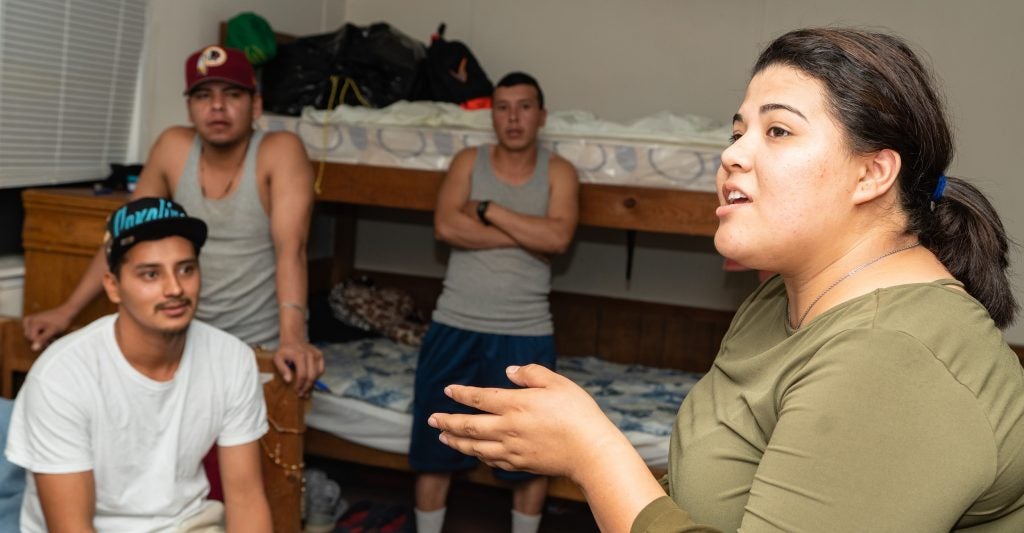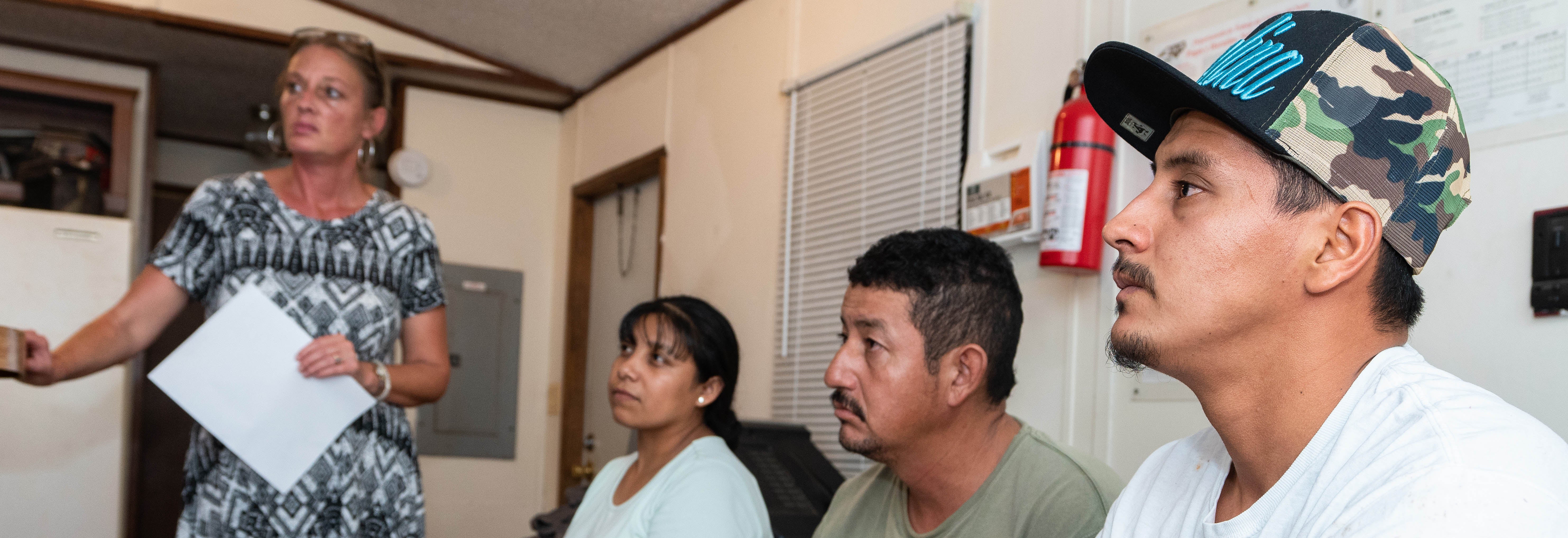IMPROVING MENTAL HEALTH
Researchers tap technology targeting migrant workers in eastern N.C.
Hurricane Florence had made landfall less than two weeks before a group of migrant workers gathered at sunset on an Edgecombe County farm to talk with East Carolina University researchers.
Mary Tucker-McLaughlin from the School of Communication and Nancy Winterbauer from the Department of Public Health are leading a project aimed at improving mental health among migrant workers through the use of geofencing and smartphones. Maritza Mata Betancourt of AMEXCAN has served as an interpreter and is assisting on the project.

Maritza Mata Betancourt of AMEXCAN interprets questions and answers during the focus group.
Geofencing typically targets potential customers in a defined geographic area. Tucker-McLaughlin got the idea after talking with a friend in sales. “It occurred to me that you could deliver health education messages the same way,” she said.
Tucker-McLaughlin, Winterbauer and public health colleague Ann Rafferty began working on a grant in 2012 that involved workforce development and its relationship to communication of public health messages through traditional media. From there, the faculty members have collaborated on several projects.
The latest project came about as a result of two previous studies using geofence as a channel to communicate public health messages, Tucker-McLaughlin said. The first focused on distributing information about coastal hazards, specifically rip currents. The second study communicated messages about the ECU dental service learning clinic in Robeson County.
With the current project, researchers hope to raise awareness about resources to combat stress, anxiety and depression in the migrant worker population in eastern North Carolina. They also want to determine which tool works best, such as an interactive website or phone app, and if positive messages about mental health are more effective than negative ones. For example, a positive message would be “taking steps to reduce stress can make you happier” while a negative one would say “not reducing stress can take a toll on your health and your family life.”
While Hurricane Florence spared the tobacco and sweet potato farmers in Edgecombe County, they were stressed from missing work because they don’t get paid when they are not working. Some other stressors can be transportation, access to health care and family issues in Mexico.
Back home, the workers said they take walks or play soccer or other sports, or sometimes go to the park to try to reduce stress. Here, they also walk, doing laps down a rural road, or play soccer.
The workers have left eastern North Carolina temporarily, and either returned home or are working with Christmas tree farmers in the mountains. They are expected back in March for the planting season, when banner ads containing links to an interactive website about mental health established by the Mexican government will be launched as part of the ECU project, Tucker-McLaughlin said.
“In the next few months, we will be designing the banner ads based on feedback from the focus group,” she said.
The advanced mobile technology message will be dropped with a demographic to reach all seasonal migrant workers in eastern North Carolina. Farms in the region include approximately 200 workers, Tucker-McLaughlin said.
The project is funded by a $3,000 grant from the College of Fine Arts and Communication.

An autumn sunset on a farm in Edgecombe County.
